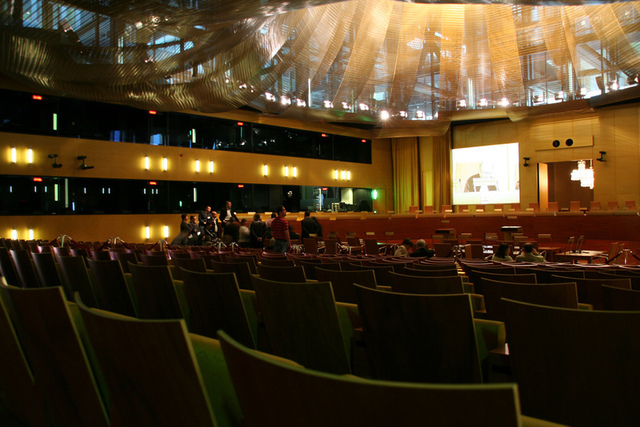
The European Court of Justice ruled on Wednesday that application programming interfaces (APIs) and other functional characteristics of computer software are not eligible for copyright protection. Users have the right to examine computer software in order to clone its functionality—and vendors cannot override these user rights with a license agreement, the court said.
The case focuses on the popular statistical package SAS. A firm called World Programming created a clone designed to run SAS scripts without modification. In order to do this, they bought a copy of SAS and studied its manual and the operation of the software itself. They reportedly did not have access to the source code, nor did they de-compile the software's object code.
SAS sued, arguing that its copyright covered the design of the SAS scripting language, and that World Programming had violated the SAS licensing agreement in the process of cloning the software.
The EU's highest court rejected these arguments. Computer code itself can be copyrighted, but functional characteristics—such as data formats and function names—cannot be. "To accept that the functionality of a computer program can be protected by copyright would amount to making it possible to monopolise ideas, to the detriment of technological progress and industrial development," the court stated.
"The purchaser of a software licence has the right to observe, study, or test the functioning of that software in order to determine the ideas and principles which underlie any element of the program. Any contractual provisions contrary to that right are null and void," the court ruled.
American courts have generally agreed with the European court's position that functional characteristics of computer programs are not eligible for copyright protection. (But the idea is currently under debate in the high-profile legal battle between Google and Oracle. Oracle says Google violated its copyrights by cloning Java APIs for use in Android.)
But American courts have been reluctant to overrule license agreements, which often remove rights that a user would otherwise possess. For example, in 2010 the US Court of Appeals for the Ninth Circuit upheld EULA terms that prohibited reverse-engineering World of Warcraft.
After Wednesday's ruling, European software users enjoy broader rights to clone software than do users on this side of the pond.
Listing image by Photograph by David Feng
reader comments
91